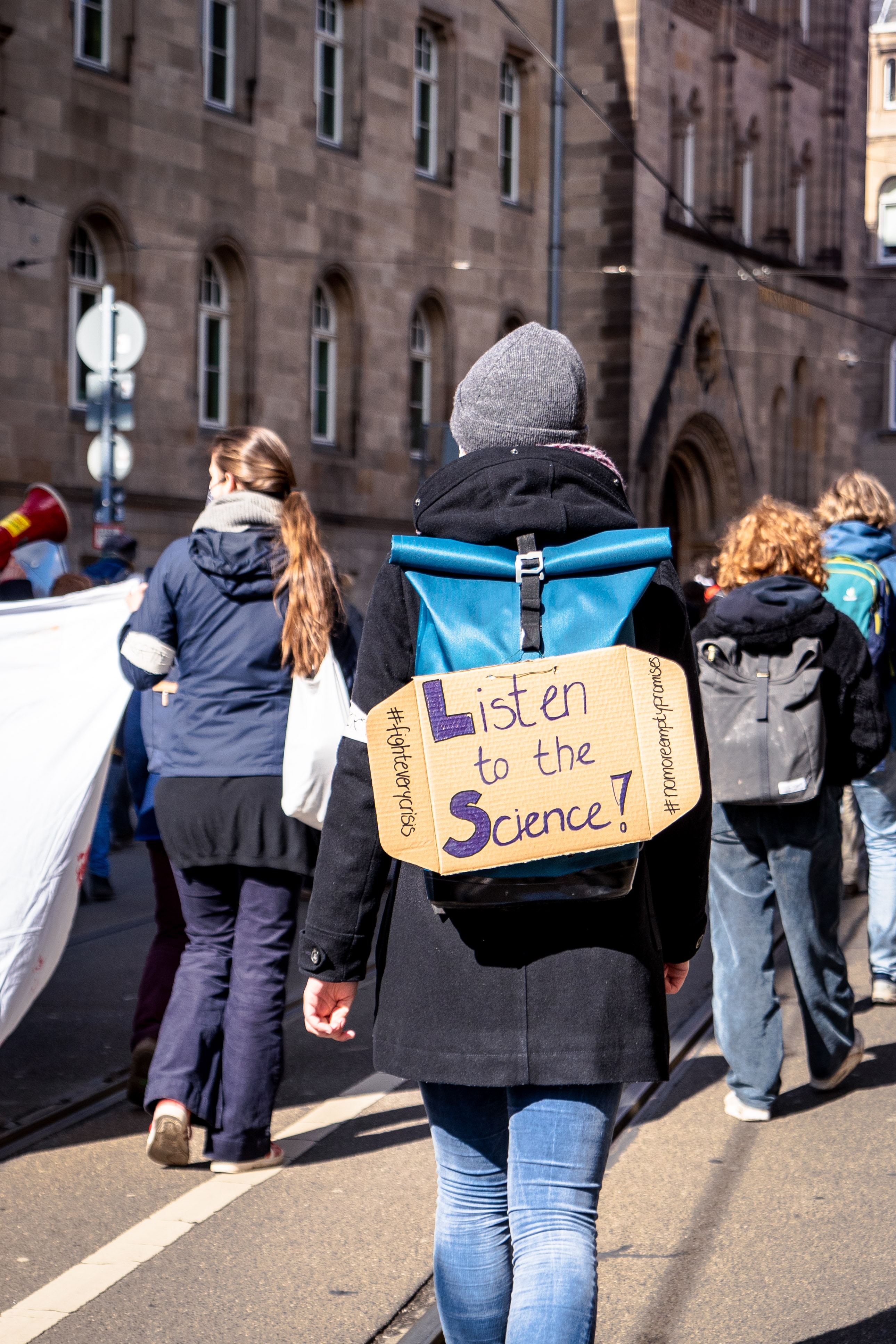For Good Science, You Need Engaged Citizens
By Gregory E. Kaebnick, Michael K. Gusmano,
Scientific American
| 07. 22. 2021
They strengthen the institutions that ensure a strong democracy, leading to rational decisions
Photo by Mika Baumeister on Unsplash
The White House has rehired a climate scientist who was forced out by the Trump administration, and is proposing to dramatically increase the budget of the Centers for Disease Control and Prevention. “Science is back” has become a Biden slogan. But listening to scientists is only the first step—and only a partial step, given the deep distrust many Americans have for experts. We must improve how ordinary citizens help shape science policy.
This is one of the findings of a recent report from the Hastings Center that examines the role of citizens in shaping policy in health and science. That role should not be limited to electing candidates and then, a few years later, expressing approval or disapproval of their job performance. Too many issues are in play at once for the voting–governing connection to be meaningful for many of them, and most people do not choose candidates on the basis of a clear understanding of policies, anyway
It is unlikely, for example, that elections will provide guidance about the governance...
Related Articles
By Teddy Rosenbluth, The New York Times | 02.09.2026
Dr. Mehmet Oz has urged Americans to get vaccinated against measles, one of the strongest endorsements of the vaccine yet from a top health official in the Trump administration, which has repeatedly undermined confidence in vaccine safety.
Dr. Oz, the...
By Ava Kofman, The New Yorker | 02.09.2026
1. The Surrogates
In the delicate jargon of the fertility industry, a woman who carries a child for someone else is said to be going on a “journey.” Kayla Elliott began hers in February, 2024, not long after she posted...
By Alex Polyakov, The Conversation | 02.09.2026
Prospective parents are being marketed genetic tests that claim to predict which IVF embryo will grow into the tallest, smartest or healthiest child.
But these tests cannot deliver what they promise. The benefits are likely minimal, while the risks to...
By Lauren Hammer Breslow and Vanessa Smith, Bill of Health | 01.28.2026
On Jan. 24, 2026, the New York Times reported that DNA sequences contributed by children and families to support a federal effort to understand adolescent brain development were later co-opted by other researchers and used to publish “race science”...




